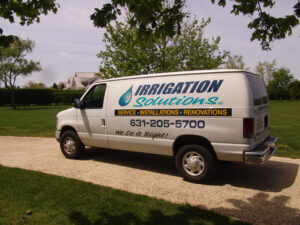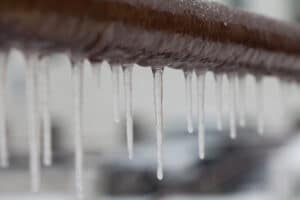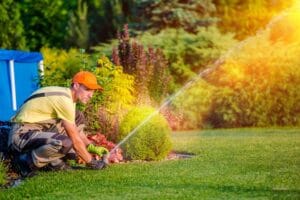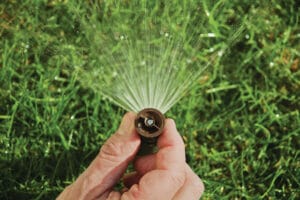With summer on its way out and fall approaching at an alarming rate, one of the most common questions homeowners are asking is, “when should I turn my sprinklers off?”
Turning the water off when the grass is still able to grow is going to result in a dead lawn that’s going to stick out like a sore thumb among all the other houses’ lively and well-kept lawns, but keeping water in an irrigation system during the freezing months can lead to broken pipes and valves, and lead to permanent damage requiring the entire system to be replaced.
Much like the answer to “when should I turn my sprinklers on?” the answer isn’t as simple as a single date or time measure.
Sprinklers and Cold Weather
The answer is “before temperatures generally dip below freezing at night.”
The biggest problem that can strike an irrigation system in the winter is water leftover in the pipes and valves from the summer freezing. The ice in the pipes expands and can create cracks in the pipes (this leads to water leaking in the summer) and can damage the valves so that they stop fully opening or closing (which will cause leakage or a whole irrigation system failure.)
Of course, all of this can be prevented just by winterization, the process of temporarily shutting off sprinklers for the fall and winter season by removing any excess water from the system and making sure that no ice forms within the pipes or valves.
The best solution to figuring out when to winterize is as simple as checking the weather app on a phone. When the daily lows are above 32 degrees, there’s still some use to be had out of watering the grass, but when the daily lows are about to be consistently below 32 degrees at night, it’s going to be time to get the excess water out of the pipes.
One of the biggest mistakes people make when it comes to turning the sprinklers off is that the first cold day of September or October doesn’t automatically make it fall. There can be an early outlier date that dips below freezing, but the next two weeks can all have nights in the lower 40s and days in the 50s and 60s, which is time that the sprinkler system can still be used to try and keep the grass green through the fall.
And as always, when getting sprinklers winterized, it’s crucial to find a reputable and experienced irrigation company that can get all of the water out of the system and prevent damage to the sprinklers come springtime.






